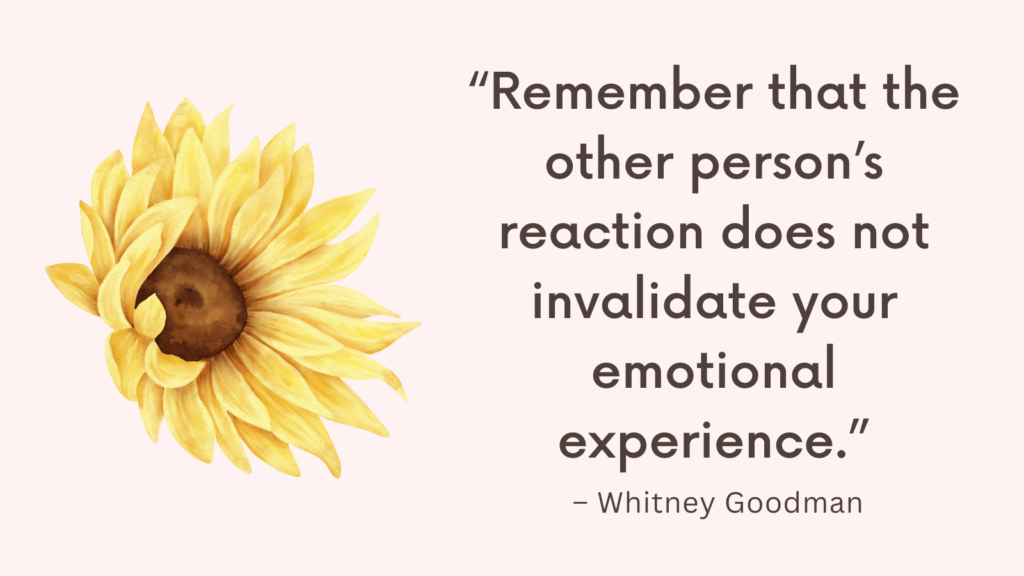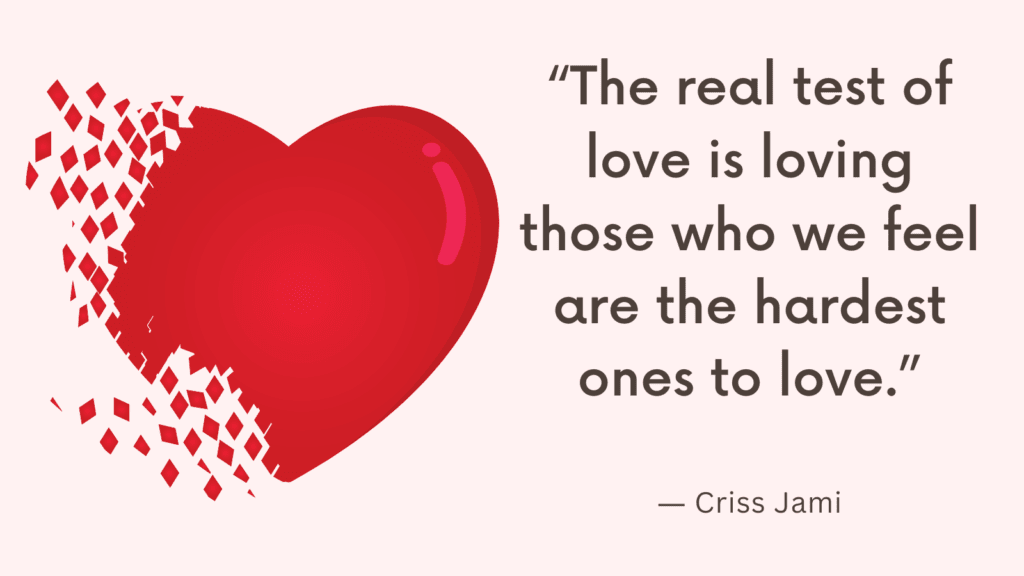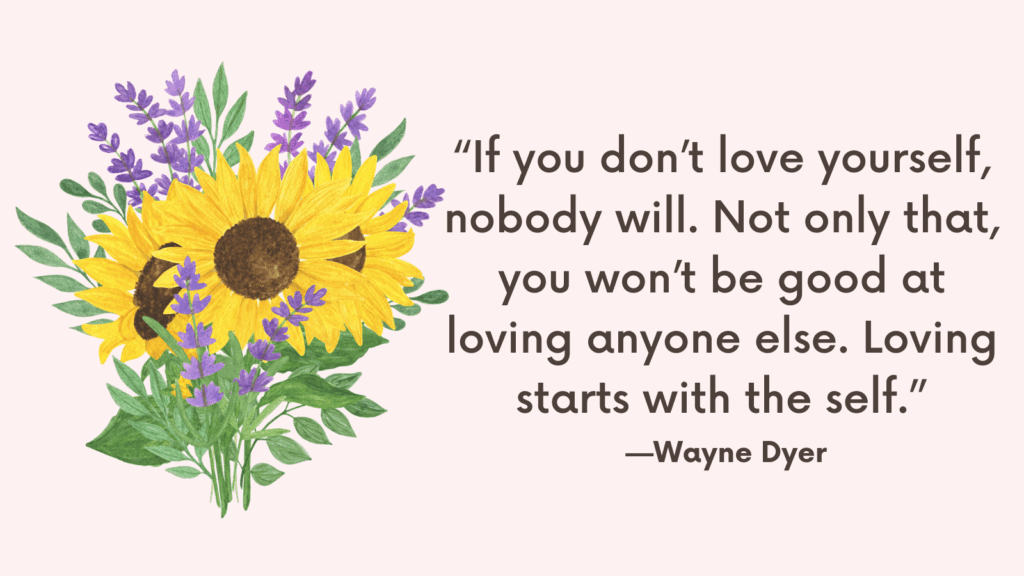In this post, you’re going to learn how to respond to invalidation.
What Is Invalidation?
Invalidation refers to the act of dismissing or negating someone’s emotions, thoughts, or experiences.
It is a form of communication that undermines or denies the validity of another person’s feelings or perspectives.
Invalidation can occur in various ways, such as minimizing, ridiculing, or ignoring someone’s emotions or experiences.
It can be intentional or unintentional, and it often stems from a lack of empathy, understanding, or awareness.
Invalidation can have significant emotional consequences for individuals who experience it.
It can make them doubt their own feelings, question their perceptions, and feel unheard or unimportant.
Over time, repeated invalidation can erode self-esteem, cause emotional distress, and strain interpersonal relationships.
Validation is the opposite of invalidation.
Validation involves recognizing and acknowledging someone’s emotions or experiences as legitimate and understandable.
It helps individuals feel heard, understood, and validated in their feelings and perspectives.
Related: How To Validate Someone’s Feelings Without Agreeing? (+Examples of Validating Statements)
What Does Invalidation Sound Like?
Invalidation can take many different forms and can sound different depending on the specific situation and individuals involved.
Here are some examples of what invalidation may sound like:
1. Minimizing: “Stop making such a big deal out of it. It’s not that important.”
2. Denying: “You’re overreacting. That never happened.”
3. Dismissing: “You’re just being sensitive. Get over it.”
4. Belittling: “You’re too emotional. Can’t you handle anything?”
5. Ignoring: “I don’t want to hear about your problems right now. Just leave me alone.”
6. Blaming: “It’s your fault for feeling this way. You’re just looking for attention.”
7. Comparing: “Others have it much worse than you. You should be grateful.”
8. Gaslighting: “You’re imagining things. That never occurred.”
9. Reversing responsibility: “If you hadn’t done/said that, that wouldn’t have happened.”
10. Invalidating feelings: “You shouldn’t feel that way. There’s no reason for it.”
Related: Best 10 Books On Validation
How to Respond To Invalidation?
Here are some strategies to help you respond to invalidation:
1. Self-awareness
Start by becoming aware of your own emotions and recognizing when you feel invalidated.
This will help you identify the impact of invalidation on yourself and allow you to respond more effectively.
2. Validate your own feelings
Remind yourself that your feelings are valid and important.
Take time to acknowledge and understand your emotions without judgment.
Practice self-compassion and remind yourself that you deserve to be heard and understood.
3. Communicate assertively
When faced with invalidation, it is crucial to express your thoughts and emotions in a calm and assertive manner.
Use “I” statements to assert your perspective and make it clear that your feelings matter.
For example, say, “I feel hurt when you dismiss my experiences because it makes me feel unheard and devalued.”
Related: 4 Essential Keys To Effective Communication
4. Set boundaries
Establishing healthy boundaries is crucial in dealing with invalidation. Communicate your boundaries clearly and respectfully.
Let others know when their comments or actions are invalidating and request a more supportive approach.
By doing so, you create an environment where your emotions are valued and respected.
5. Seek support
Reach out to trusted individuals who can provide validation and support.
Seek out friends, family members, or support groups where you can share your experiences and find empathy.
Surround yourself with people who understand and respect your feelings.
6. Challenge self-doubt
Invalidation often contributes to self-doubt and questioning your own experiences.
Practice self-reflection and remember that your thoughts and feelings are legitimate.
Challenge negative self-talk and replace it with positive affirmations that reinforce your self-worth.
Related: Top 18 Self Esteem Exercises (+FREE CBT For Self-Esteem Worksheets PDF)
7. Educate others
Sometimes, people invalidate others unintentionally due to lack of awareness or understanding.
If you feel comfortable, engage in open and honest conversations with those who invalidate you.
Share your perspective, educate them about the impact of their words or actions, and help them understand the importance of validation.
It’s important to remember that while these strategies can be helpful, they may not completely eliminate invalidation from others.
However, by implementing these suggestions, you can empower yourself and create a healthier emotional environment for yourself.

Conclusion
Invalidation refers to the act of dismissing or disregarding someone’s emotions, thoughts, or experiences.
It can be incredibly damaging to one’s emotional well-being and can lead to feelings of frustration, self-doubt, and even depression.
Remember, your feelings and experiences are valid, and you deserve to be treated with respect and understanding.



